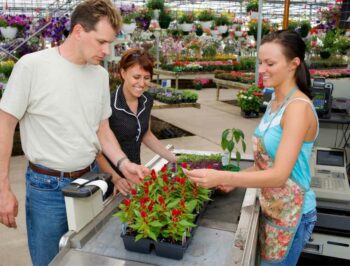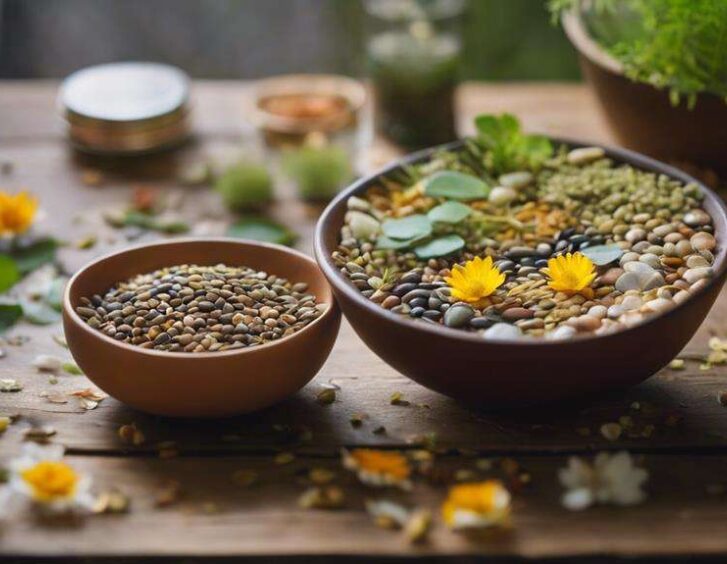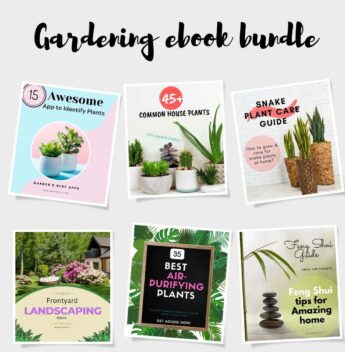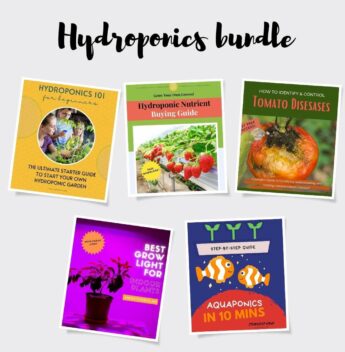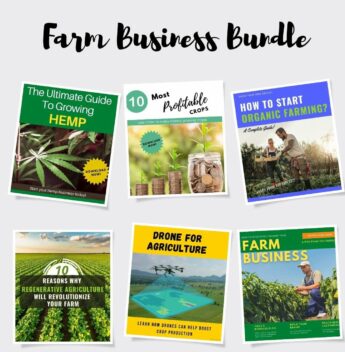Soaking your seeds before planting is like giving them a VIP treatment that sets them up for success! It's not just about avoiding seed rot; it's about unlocking their full potential for a bountiful harvest.
When you soak seeds, you're basically jumpstarting their growth process, leading to better germination rates and stronger seedlings. This simple step boosts hydration, making sure your seeds grow up to be healthy and robust plants.
Different seeds, like peas, beets, tomatoes, and peppers, each have their own soaking preferences to thrive. By following specific soaking strategies, you're paving the way for a flourishing garden.
Let's dive into the details to maximize your harvest!
Key Takeaways
• Soaking seeds reveals their full potential by improving germination rates, strengthening seedlings, and reducing the risk of seed rot.
• Soaking seeds in lukewarm water for 8-12 hours before planting accelerates growth, especially in cool climates.
• Discard any seeds that float to the surface after soaking, as they are likely to be non-viable.
• Soaking seeds enhances seed hydration, leading to stronger roots and improved yields in crops like beets.
• Soaking seeds can speed up germination, especially when combined with optimal sowing and precise watering techniques.
Benefits of Soaking Seeds
By soaking your seeds before planting, you can reveal their full potential, breaking through tough outer shells, protecting delicate embryos from damage, and softening outer layers for better germination rates. This simple step can make a huge difference in your gardening journey.
Seed hydration benefits include improved germination rates, stronger seedlings, and a reduced risk of seed rot. By soaking your seeds, you can also tap into their full potential, allowing them to grow stronger and healthier.
The seed soaking advantages are undeniable, and with this technique, you can give your seeds the best possible start in life. So, take the first step towards a thriving garden by soaking your seeds today!
The Soaking Method
Get started with soaking your seeds by gathering the right supplies and following a simple process that covers seeds with lukewarm water, away from direct sunlight. This method helps with seed hydration, which leads to better germination success.
Here's what you need to do:
- Gather supplies: a container, lukewarm water, and seeds.
- Cover seeds with water: make sure they're fully submerged.
- Let it sit: away from direct sunlight, for the recommended time.
Unlocking Peas' Potential
To enhance germination, especially in cool climates, soak your peas for 8-12 hours before sowing, and discard any floating peas after soaking. This simple step can reveal your peas' full potential, leading to accelerated growth and improved yield.
By softening the outer layer, you'll give your peas a head start, allowing them to thrive in cooler weather conditions. With proper soaking, you'll be on your way to a bountiful harvest.
Beet Success Strategies
You can boost beet germination rates by soaking the seeds for 8-12 hours before planting, a simple step that pays off in improved yields and stronger roots.
As a grower, you'll appreciate the benefits of soaking, especially when working with multi-germ seeds.
To maximize success, remember these key strategies:
- Boron application: Beets are heavy boron feeders, so consider adding boron powder to the soil for an extra boost.
- Soaking: Soak beet seeds for 8-12 hours to break through their tough outer shells and encourage healthy growth.
- Optimal sowing: Plant soaked seeds immediately to prevent rot and secure the best possible start for your beets.
Tomato and Pepper Tips
When storing tomato and pepper seeds, keep them in a cool, dry place to maintain their viability, as improper storage can greatly reduce their germination rates.
You can soak tomato and pepper seeds to speed up germination and prevent drying out. For best results, germinate them on a heat mat at 80°F. Maintain soil moisture to prevent drying out.
In greenhouse growing, use precise watering techniques to guarantee consistent moisture levels. Soaking can give your tomatoes and peppers a head start, but make sure to sow them immediately after draining to prevent rot.
Cucumber Germination Boost
By pre-soaking cucumber seeds, you can boost germination rates in dry, warm conditions, giving your plants a strong head start. This technique is especially helpful when growing cucumbers in areas with low moisture levels. To pre-soak your seeds, simply wrap them in a moist paper towel overnight. This will help to control moisture levels and improve seed viability.
Here are three benefits of pre-soaking cucumber seeds:
- Enhanced germination rates: Pre-soaking helps to soften the outer shell, making it easier for the seedling to emerge.
- Improved moisture control: By pre-soaking, you can make sure that your seeds receive the right amount of moisture, reducing the risk of drying out.
- Stronger seedlings: Pre-soaking gives your cucumber seedlings a strong start, allowing them to grow healthy and strong.
Bean Soaking Secrets
Your bean seeds will thank you for a good soak, which mimics the natural softening process that occurs in rainy weather. This legume hydration technique helps to break down the tough outer shell, allowing the embryo to emerge more easily.
For best seed softening, soak your beans for the right amount of time - 2-4 hours for thin-skinned beans and 8-10 hours for thick-skinned ones. After soaking, gently tuck your seedlings into soil to avoid transplant shock.
Direct sowing above 60°F will guarantee healthy growth. By following these simple steps, you'll be on your way to a bountiful bean harvest. Remember, a good soak can make all the difference in your bean's journey from seed to plate.
Pumpkin Planting Hacks
Filing seeds before soaking improves pumpkin germination rates, allowing you to get a head start on the growing season. By doing so, you'll increase the likelihood of successful germination and give your pumpkins a strong foundation for growth.
Here are three essential pumpkin planting hacks to keep in mind:
- Optimize seed spacing: Plant seeds at the correct depth and spacing to guarantee proper air circulation and sunlight penetration.
- Experiment with soaking: Try different soaking times to find the perfect balance for your pumpkin seeds.
- Monitor for survival: Keep a close eye on your seedlings' progress, and adjust your care routine accordingly to secure their survival.
Corn Seed Preparation
To guarantee successful germination, you'll want to soak your corn seeds for 12-24 hours, which helps to soften the outer shell and conserve energy for essential germination. This kernel softening process allows the seed to focus its energy on important germination, giving it a strong start in life.
By soaking your corn seeds, you're giving them the best chance to grow into healthy, thriving plants. Simply submerge the seeds in lukewarm water, away from direct sunlight, and let them soak. After the soaking period, drain and plant the seeds immediately to prevent rot.
With this simple step, you'll be on your way to a bountiful corn harvest.
Seed Varieties and Soaking
Now that you've optimized your corn seeds for germination, let's explore how different seed varieties respond to soaking, and how you can tailor your approach to get the best results from your specific seeds.
You'll find that some seeds, like peas and beans, thrive with soaking, while others, like tomatoes and peppers, may not require it. Understanding the unique needs of each seed variety is crucial to maximize germination rates.
Here are three key considerations for seed selection and soaking techniques:
- Seed viability: Confirm your seeds are fresh and viable to achieve the most favorable outcomes.
- Germination experiments: Conduct experiments to determine the best soaking time for each seed variety.
- Soaking techniques: Adjust your soaking method based on the seed type, climate, and soil conditions.
Frequently Asked Questions
How Long Can Soaked Seeds Be Stored Before Planting?
You're wondering how long you can store soaked seeds before planting. The answer depends on seed viability and storage conditions.
Generally, soaked seeds can be stored for 24-48 hours in a sealed container in the refrigerator. However, it's best to sow them as soon as possible to guarantee peak germination rates.
Make sure to keep them away from direct sunlight and maintain high humidity to preserve seed viability.
Can Seeds Be Soaked in Cold or Warm Water?
When soaking seeds, you might wonder if water temperature matters. The answer is yes! Seeds respond differently to cold and warm water.
Warm water (around 70-90°F) is ideal for most seeds, as it activates their hydrophilic properties, helping them absorb water quickly.
Cold water can slow down the soaking process, but it's still effective for some seeds. Experiment with different water temperatures to find the best soaking method for your seeds.
Do All Seeds Benefit From Soaking, or Are There Exceptions?
You might wonder, do all seeds benefit from soaking, or are there exceptions?
The truth is, not all seed varieties respond equally to soaking. While many seeds, like peas, beets, and cucumbers, thrive with soaking, others, like lettuce and radish, don't benefit or even suffer from it.
Debunking soaking myths, it's essential to research specific seed needs to maximize germination rates and avoid potential drawbacks.
Can Soaked Seeds Be Direct-Sown in Outdoor Gardens?
You're wondering if you can directly sow soaked seeds in your outdoor garden. The answer is yes, but with some prep. Make sure your soil is ready by loosening it to a depth of about 12 inches. Then, create a smooth, even surface.
Once you've sown your soaked seeds, gently firm the soil to secure them. Proper soil preparation and gentle handling will help your seeds germinate successfully.
Are There Any Seeds That Should Not Be Soaked Before Planting?
When it comes to soaking seeds, you'll want to exercise caution with sensitive species. Some seeds, like impatiens and snapdragons, have delicate seed coats that can be damaged by soaking, hindering seed germination.
These sensitive seeds are better off being sown directly into the soil without soaking. Be mindful of the specific needs of each seed type to guarantee ideal growth and avoid potential setbacks.

